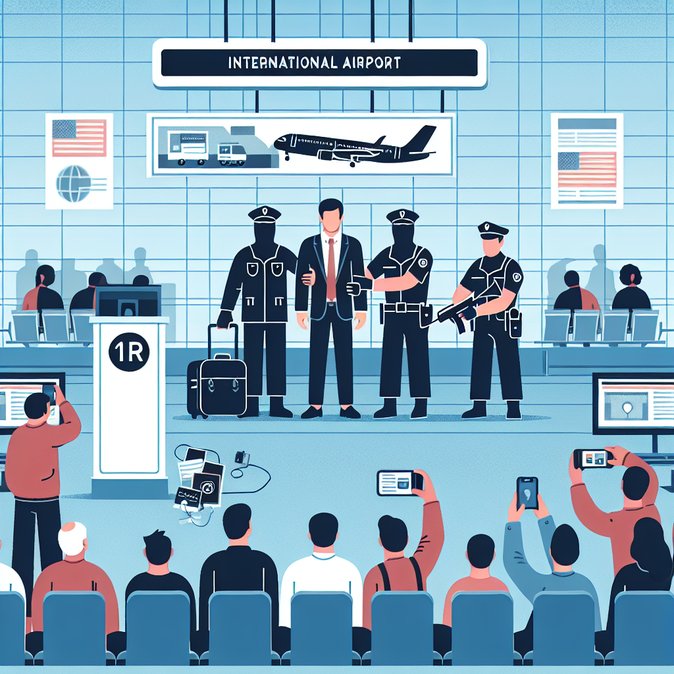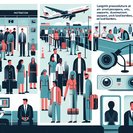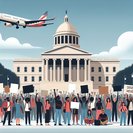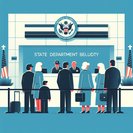
U.S. Customs and Border Protection (CBP) officers detained prominent British Muslim journalist Sami Hamdi for several hours at San Francisco International Airport (SFO) on October 27, confiscating his passport and electronic devices before releasing him without formal charges. Hamdi had just addressed a Sacramento gala hosted by the Council on American-Islamic Relations (CAIR), where he criticized U.S. support for Israel’s military campaign in Gaza.
The incident drew immediate condemnation from CAIR and press-freedom organizations, which called the detention a politically motivated attempt to intimidate a foreign critic. Far-right activist Laura Loomer took credit on social media, claiming she persuaded the Trump administration to revoke Hamdi’s visa— although immigration attorneys note that CBP cannot legally cancel a visa on the spot without State Department concurrence.
For companies that routinely send international speakers, journalists or experts to U.S. events, the case illustrates the discretionary power CBP wields at ports of entry, especially under the broad «security & public-charge» provisions of the Immigration and Nationality Act. Conferences scheduled for the West Coast in coming weeks report heightened anxiety among invitees from majority-Muslim countries and have begun issuing «border briefings» that include secondary-inspection preparation and electronic-device-privacy tips.
While SFO released Hamdi the same evening, CBP retained his laptop for “forensic examination”— a process that can take months. Legal observers expect a Freedom of Information Act lawsuit seeking records of the detention, which could clarify how political speech factors into admissibility assessments.
In the interim, mobility professionals should remind traveling employees— regardless of citizenship— that U.S. border agents may search devices and request social-media handles. Having corporate-approved «travel phones» and cloud-only storage can mitigate exposure during unexpected secondary inspections.
The incident drew immediate condemnation from CAIR and press-freedom organizations, which called the detention a politically motivated attempt to intimidate a foreign critic. Far-right activist Laura Loomer took credit on social media, claiming she persuaded the Trump administration to revoke Hamdi’s visa— although immigration attorneys note that CBP cannot legally cancel a visa on the spot without State Department concurrence.
For companies that routinely send international speakers, journalists or experts to U.S. events, the case illustrates the discretionary power CBP wields at ports of entry, especially under the broad «security & public-charge» provisions of the Immigration and Nationality Act. Conferences scheduled for the West Coast in coming weeks report heightened anxiety among invitees from majority-Muslim countries and have begun issuing «border briefings» that include secondary-inspection preparation and electronic-device-privacy tips.
While SFO released Hamdi the same evening, CBP retained his laptop for “forensic examination”— a process that can take months. Legal observers expect a Freedom of Information Act lawsuit seeking records of the detention, which could clarify how political speech factors into admissibility assessments.
In the interim, mobility professionals should remind traveling employees— regardless of citizenship— that U.S. border agents may search devices and request social-media handles. Having corporate-approved «travel phones» and cloud-only storage can mitigate exposure during unexpected secondary inspections.








